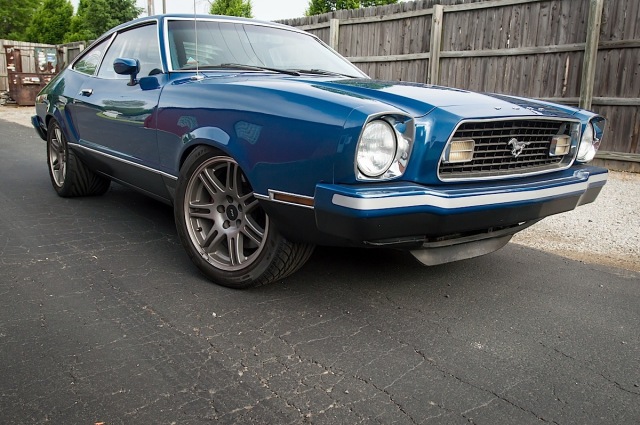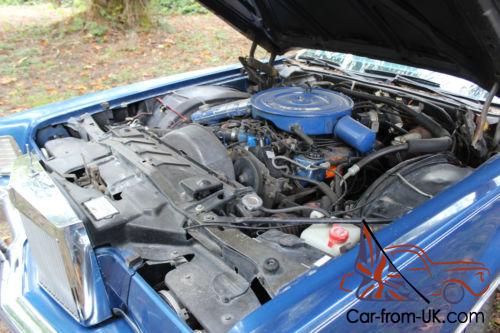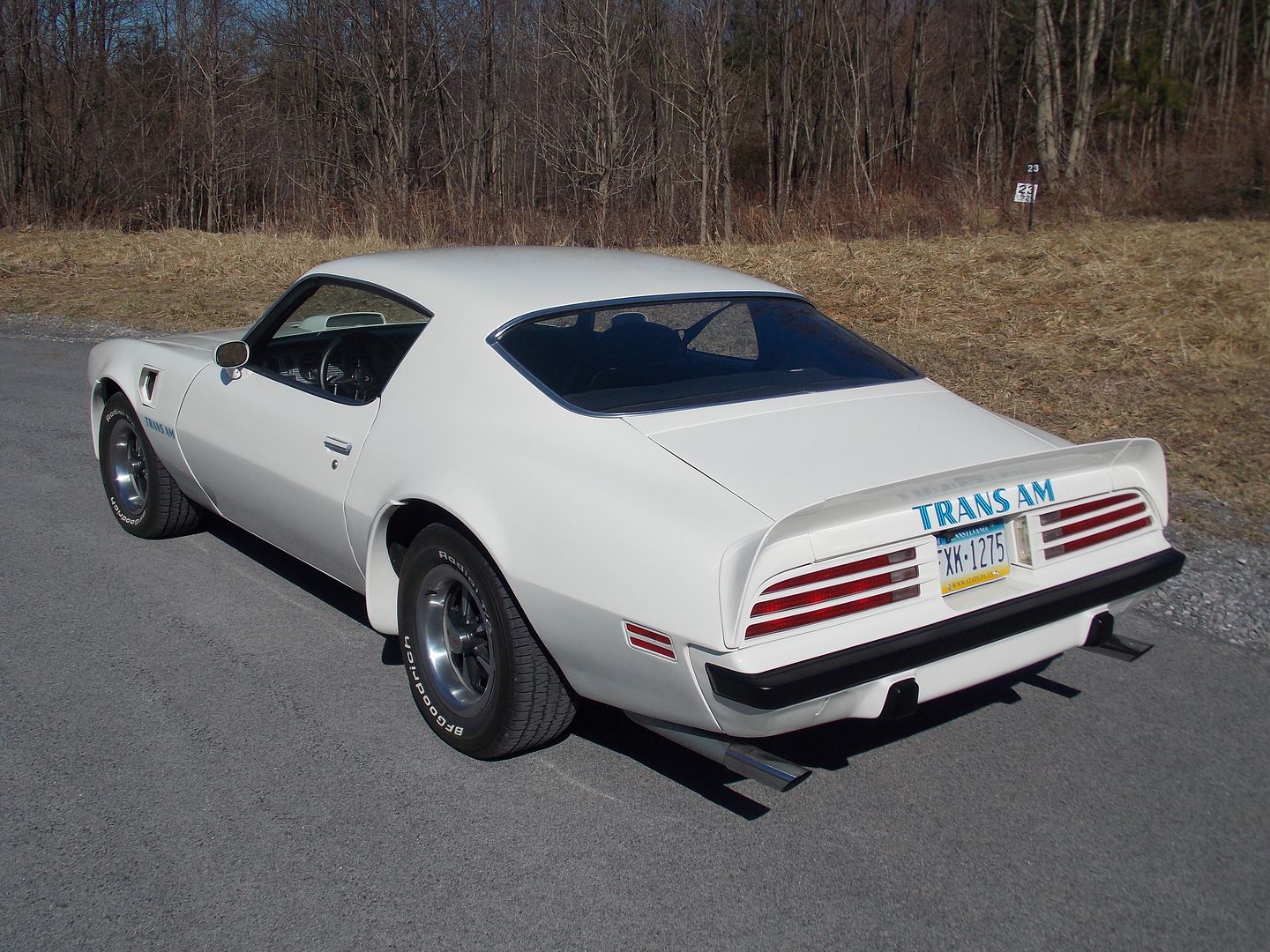I think, despite the big bumpers, there were good-looking cars in the 70’s. Point taken about a lot of them being scrapped for their big block engines. All those fake 442s and 396SS Chevelles had to get their engines from somewhere.
Another thought I had is regarding the rules of some car shows. A lot of them used to (or still do) cut off entries at 1974. Then, you’ve got Radwood, which is 80’s and 90’s focused. About the closest the 70’s has to its own show is Concours D’Lemons.
Datsun310Guy said:
In reply to Curtis73 :
Those old 80's 442's get big money. $2500?
First, it wasn't a real 442. Olds offered a "442 appearance package" which offered all the 442 stuff like the gold pinstripe, rally pack gauges, floor shifter but didn't have the higher output 307 and it had 14" versions of the 442 wheels.
I found it in the back of a dealer lot. They took it on trade and were going to just ditch it at the auction because it had bad shocks and a hole in the muffler. I don't think the manager had even seen it so I convinced him to let it go to me.
One man's malaise-era beater is another man's affordable classic.


frenchyd said:
There is a fair number of higher end cars like Jaguar and Mercedes Benz from that era. A few extra tubes and air pump etc didn't deter ownership and pride in those.
Same with Corvette although one year the 350 small block had 350 horsepower the next it was 160 horsepower. Pretty much the same engine except instead of advertised horsepower it was actual horsepower. A lot of people would rather be lied to.
Two big things killed the whole HP thing, but it's not what most people think. They think that all the added hoses, air pumps, and emissions helpers can be taken off and they'll gain all the hp back. They fail to realize that the emissions stuff costs almost zero hp. It was the neutering of the compression and cams that killed it for EPA regs.
Compound that with the switch from gross hp to sae net and you quickly saw 350 hp muscle cars become 200 hp wheezers even though they didn't lose nearly as much as you think... mostly because the old gross hp rating was ridiculously optimistic.
In reply to Curtis73 :
Well said. People want to be lied to. That's why the same engine a year later with a little less compression and cams sold poorly.
Then the factories thought they could increase fuel mileage with Fuel injection. Remember that? The early fuel injection from the mid 70's. Really simple, but to mechanics familiar with carbs a total mystery.
It didn't help that cost cutting caused all those Car -B- Ques on the side of the road. Retro fitting of carbs satisfied some, Better development actually solved the rest of it. Now mechanics actually know less but they can plug in and fix what's wrong.

Vigo
MegaDork
1/13/20 10:42 a.m.
I only own one 'malaise era' car right now, a 1980 Town and Country wagon. I have a 1980 Plymouth pickup which is actually a mitsubishi, and i dont count it. I have an 82 Lebaron convertible that I also don't think remotely counts either since it's a huge leap forward from the 1980 wagon or actual 70s cars.
I actually haven't owned much from the 70s. I did have a 75 F150 that was.. ok. And i had a 77 Volvo 242DL which was shockingly good for the 70s. Most people probably don't think about Volvo 240s as being '70s cars' which is a subconscious recognition of it being ahead of its time, i suppose. I rebuilt the top end on a 1976 Continental 460ci similar to the one pictured above a year back. It's pure novelty at this point. Huge engine, huge exterior, midsize at best interior, blah acceleration, zero handling, horrible fuel economy. I don't care that it sucks because I own many things that suck and novelty has huge value to me, but i can see why non-fanatics just threw them away.

My own opinion is that mechanical problems can be more easily solved than aesthetic ones. And my own time and money is limited. So if I'm looking at doing something to a car, is it worth my time to start with a platform that has style, grace, and proportion, or one that's been buggered all up with mandatory safety and crash worthiness modifications to stagger through an increasingly stringent set of hoops before getting to market. Yes, there are a few 70's designs that look good, and some that can be easily modified to look better (via removing bumpers or other minor changes) but the interiors often got cheap and plasticky, and the landua-ification that coincided with the malaise era often creates other problems (i.e. rust under vinyl tops).
So, given the choice between a late 50's car that needs disc brakes and some suspension mods to be an acceptable driver, or a malaise car that's already got a decent suspension and brakes but looks like a rolling hot dog stand and has a wheezer of an engine (and is probably hundreds of pounds heavier to boot), which are you going to devote your time and energy to?
I suspect this has happened with every era of cars. Given enough time these cars will be desirable enough and people will start to save the interesting ones.
Aaron_King said:
I suspect this has happened with every era of cars. Given enough time these cars will be desirable enough and people will start to save the interesting ones.
I think it's already happening with 80's and 90's cars, based on some of the prices I've seen.

Curtis73 said:
frenchyd said:
There is a fair number of higher end cars like Jaguar and Mercedes Benz from that era. A few extra tubes and air pump etc didn't deter ownership and pride in those.
Same with Corvette although one year the 350 small block had 350 horsepower the next it was 160 horsepower. Pretty much the same engine except instead of advertised horsepower it was actual horsepower. A lot of people would rather be lied to.
Two big things killed the whole HP thing, but it's not what most people think. They think that all the added hoses, air pumps, and emissions helpers can be taken off and they'll gain all the hp back. They fail to realize that the emissions stuff costs almost zero hp. It was the neutering of the compression and cams that killed it for EPA regs.
Compound that with the switch from gross hp to sae net and you quickly saw 350 hp muscle cars become 200 hp wheezers even though they didn't lose nearly as much as you think... mostly because the old gross hp rating was ridiculously optimistic.
To add to this, they switched to net in 1972. They started killing compression in 1971 (for the most part) and by 1973 everything was speced out to be in the 8:1 range, but the plant managers would deck the blocks and heads to the high end of tolerance because it was faster and wore the tooling less, so a lot of those engines were closer to 7:1.
And the cams were not only wee, but in Ford's case were often retarded 8 degrees from "straight up" to kill compression even further...
Gross generally had nothing to do with power output. The high end engines were often underrated so nobody but racers would buy them, to minimize warranty claims. Those 290hp Ford and Chevy homologation special 302s were closer to 400-450 real horsepower, it's awful funny how valves and cams and compression and cylinder heads kept getting better through the 60s but the top engines all made no more than "425" horsepower. Of course there was sandbagging in the other direction too in other cases. Like how the same engine in the Corvette would make 10hp more than in the Camaro or Malibu/Chevelle, in the years they shared a particular engine.
I have an unproven theory that green 4 doors have the highest survival rate of any vehicle.
I see these at our local drag strip often. My assumption is that most of the ones remaining share a similar fate. Who else would knowingly keep an 82 Olds Cutlass going?

tuna55
MegaDork
1/13/20 12:17 p.m.
AnthonyGS said:
I'm just going to leave this here. This car belongs to Dale Jr and is allegedly his favorite. You can say whatever you like about these.... my dad crewed one of these in a few USAC stock car races too. I might be able to find photos of that car.

Came here to post a pic of this. Left satisfied.
Pete Gossett said:
MrChaos said:
for some reason there are a lot of late 70's Lincoln Continentals and a few Big Thunderbirds for sale near me.
If you encounter an original & clean 77-79 Town Car for around Challenge price please let me know. All the ones I see are either well-used or $5k.
How clean and how far away?
There was a pretty decent one locally to me for $1500 about 2 weeks ago
noddaz said:
I have an unproven theory that green 4 doors have the highest survival rate of any vehicle.
Huh. Turns out I do not have a photo of my RX-3 on my tablet.
It is a four door. And is from 1973. And is blue, which is the same color as green in Japanese.
This ain't no rolling hot dog stand:

That's straight up American style and grace.
Stampie said:
Curtis73 said:
Stampie said:
Between the safety standards ruining the looks and the emission standards ruining the performance they basically all sucked. Yeah a few survived but only because they could overcome those two strikes.
But they are perfect platforms for a super easy engine swap. Heck, if you're getting a 1964 GTO, it's going to have 10.5:1 compression and open chambers that worked great with leaded gas and only made 330 gross hp (275 or so SAE net). You're going to have to swap heads anyway and neuter it further or keep race gas around.
And I think this is beautiful:

I agree. I think a 70 high compression Cadillac 472 would be cool in a 78 small body Cadillac coupe de ville. But you know what? That same engine will be so much berking cooler in a 28 Model A. Yeah these years are good values but to they are priced low for a reason.
And it will fit just fine as the original 425 used from 77 to 79 is the same block with less bore.
In reply to dculberson :
Truth. I don't think those bumpers are "ugly crash-rated safety features," I think they are gorgeous, chrome-laden centerpieces of glory.
I've built a few Caddy 500s. Amazing engines. Easy torque, no need for more than three gears, 2.43 ratios work great. Super easy to go fast without expensive additional upgrades.
Take one malaise-era wheezer with 2.73 gears and a TH400, drop in Caddy, roast tires and get 20mpg.
The fact that they only weigh about 35 lbs more than a 350 is a nice bonus too.
Aaaannd I'm currently searching CL for cars from 1973-87
Dammit.
dculberson said:
This ain't no rolling hot dog stand:

That's straight up American style and grace.
Note that there is about 3 feet of mostly empty space between the front of the engine and the front bumper:

In reply to dculberson :
Of all the 70's land yachts, I do prefer the Lincolns. But still, if you're lookig at that, vs, say, this:

There's not really any contest. Especially when you start looking inside, and see, instead of chromed potmetal and wood trim, plastic chrome and plastic wood. It's just all-around cheaper. The reason for this is in '68 or thereabouts, they started regulating things like pointy knobs and shiny trim that would be distracting to the driver, so knobs got big and blunt and trim got dull.
jstein77 said:
dculberson said:
This ain't no rolling hot dog stand:

That's straight up American style and grace.
Note that there is about 3 feet of mostly empty space between the front of the engine and the front bumper:

My first car was a T-bird of that generation.
When they downsized it for '77, they just stuck it on the shorter Torino frame, so they lost a lot of rear seat room. Still had all the space up behind the bumper.
When the Cruze came out, I was curious as to how its size compared to older cars. Turns out that it is almost identical to a Celebrity except for the length, which was about 10 inches off. Most or all of that 10 inches can be accounted for by wasted space behind the bumper.
Paul_VR6 said:
I see these at our local drag strip often. My assumption is that most of the ones remaining share a similar fate. Who else would knowingly keep an 82 Olds Cutlass going?
I could be wrong, but I think they have a rear suspension design similar to fox body Mustangs. If so, I can see how they’d be popular for drag racing, even without being back-halfed.
















































